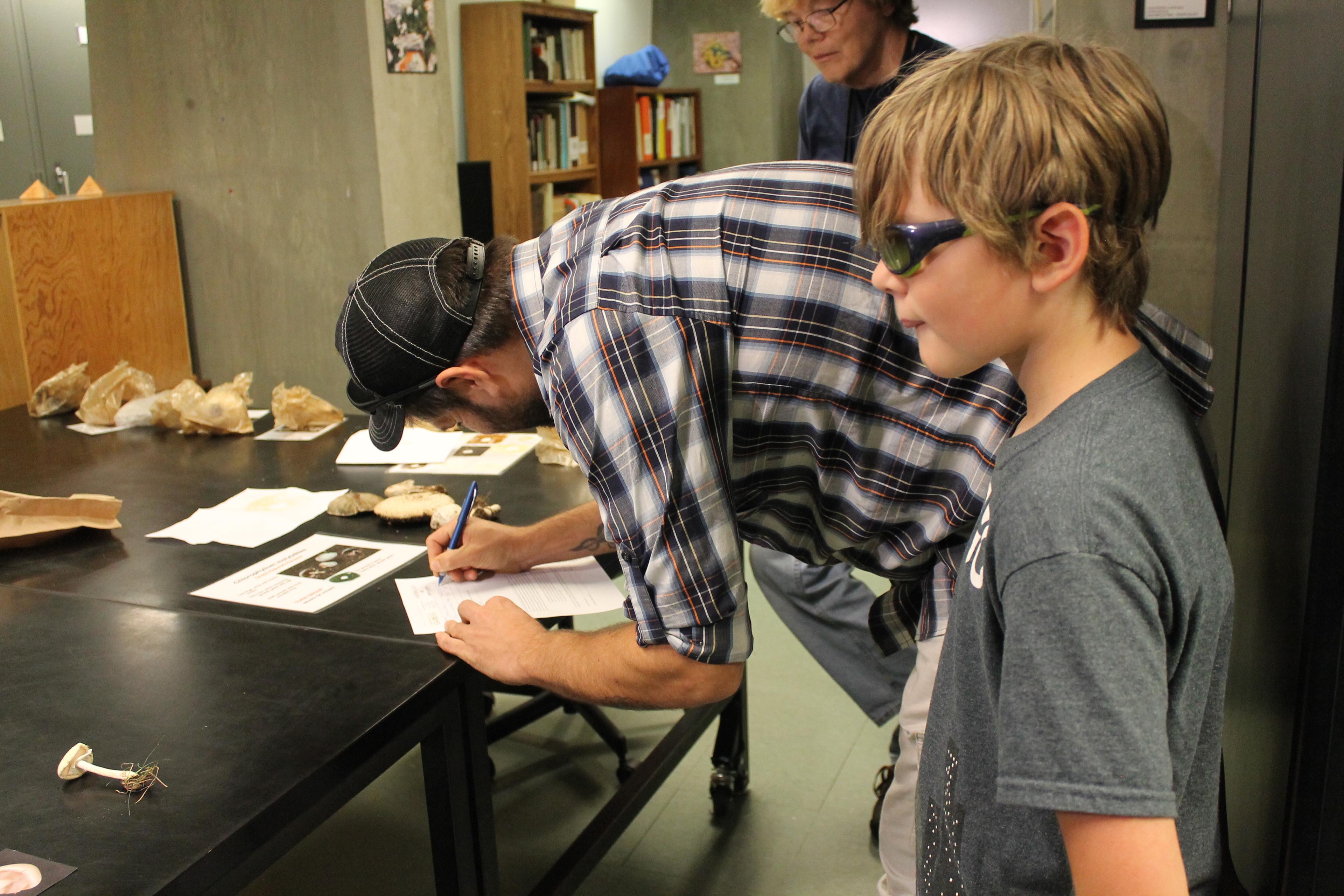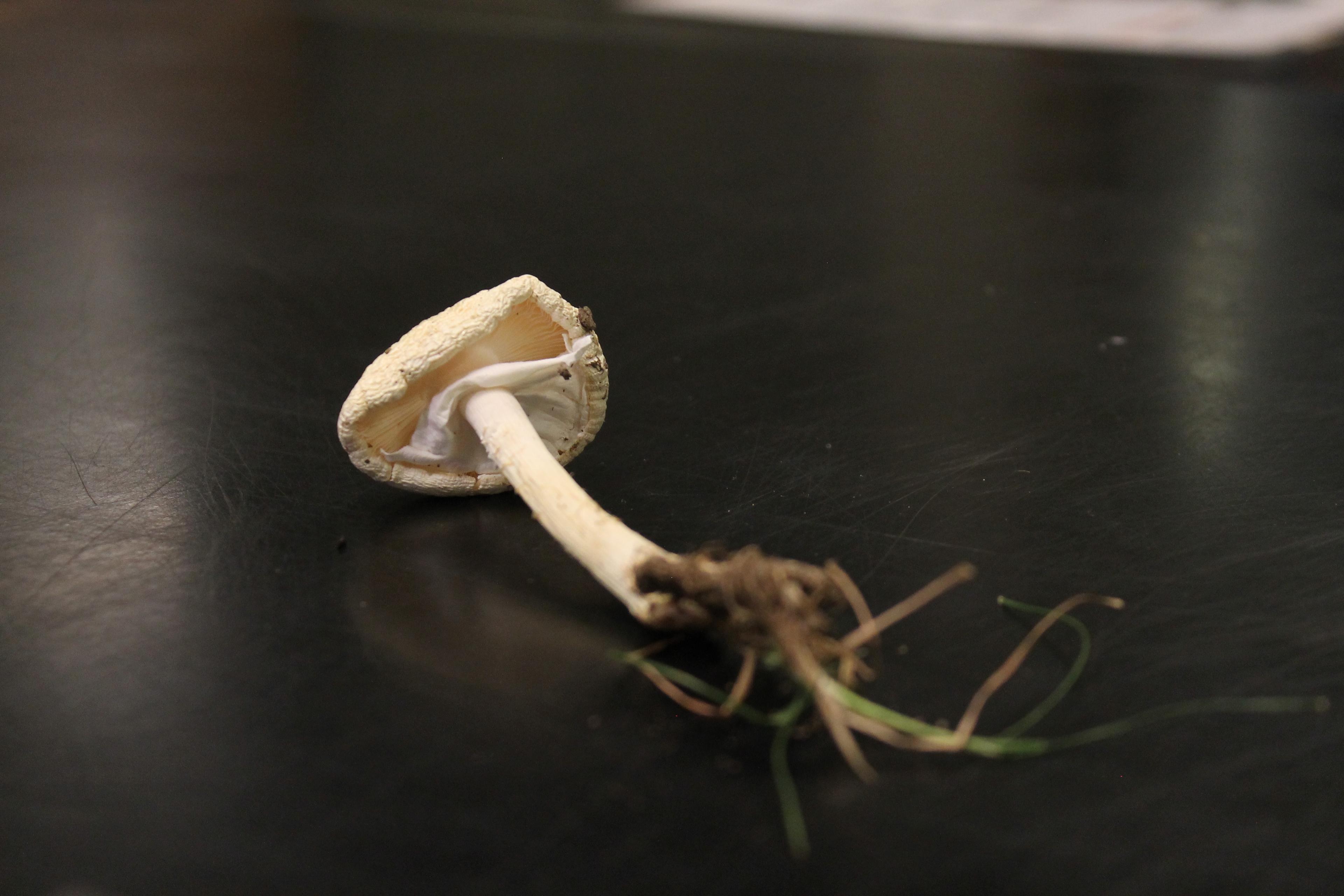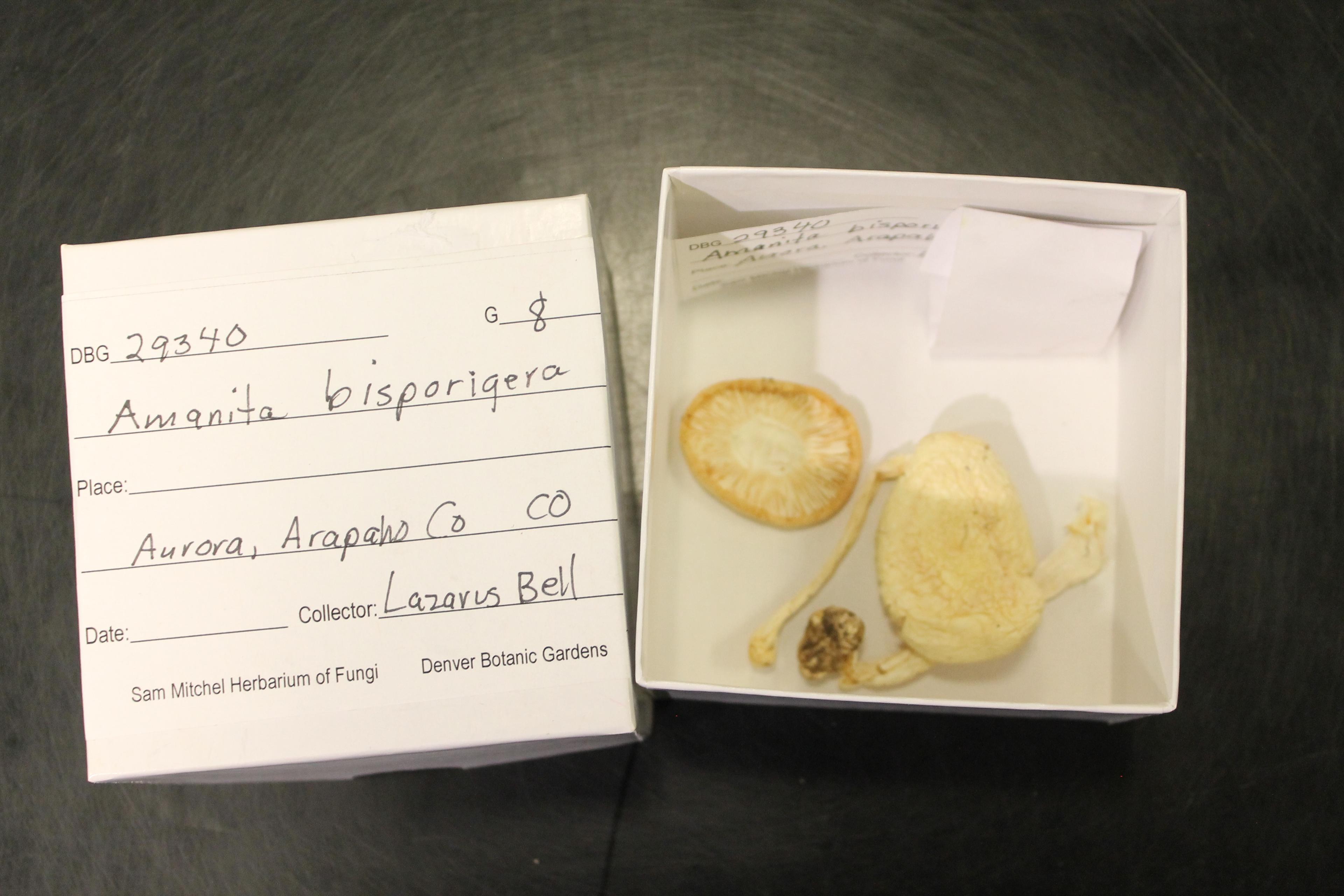Lazarus Bell is getting a new tattoo.
Actually, it'll be a coverup, he told the Denver Botanic Gardens staff standing amongst cabinets of plant specimens. His wife only said no new tattoos, so to commemorate his discovery of a highly poisonous mushroom out of its usual territory, he'll get it tattooed over some old ink he doesn't like inside his forearm.
The species he found in Aurora, amanita bisporigera, is otherwise known as the Destroying Angel. It's never been found here before, and Bell, a member of the Colorado Mycological Society, found two of them this week.
"It's a treasure hunt for me," he said.

He found the first mushroom while he was out for a walk on Sunday.
"I saw it from across the street and it looked like there was a beam of light on it because it was so white," he said.
It was about 6 to 8 feet from the base of an oak tree in someone's yard. He knocked on the front door to ask permission to dig it up. He told the woman who came to the door why he was there, and she was "super excited to have it taken away from her yard."
He found the second mushroom yesterday, about 12 feet from the base of a different oak tree.
So that's how Bell found himself in a research room with his son, Nathan, at the Denver Botanic Gardens, signing a form to donate fungi to science. He says he's no expert, but he knows the most important stuff.
"I know the ones that’ll kill you," he said when I asked how he knew what he was looking at. "If you’re gonna collect mushrooms and find tasty ones to eat, you better know which ones are poisonous."

About half a cap would be enough to kill you, Vera Evanson confirmed. She's the curator of the Sam Mitchel Herbarium of Fungi at the Gardens and author of "Mushrooms of the Rocky Mountain Region," and emphasized how unusual it is that Bell discovered the amanita bisporigera here.
"We have the records. Here in the urban area — Aurora, Denver, Boulder — nothing," she said. "Of course, it was under an oak tree, and I would suggest everyone who has an oak tree go and look."
Different kinds of mushrooms favor different kinds of trees, she said, so Bell's discoveries near oak trees are a good indicator that if there are more out there, they'll be under an oak. They're safe enough to pick, but — and this goes without saying, but I'll say it anyway — you should very definitely not eat them or feed them to your enemies.
After the Gardens staff perform some genetic sequencing to learn more about what Bell found, his specimens will go into cardboard boxes in a climate-controlled storage area at the Gardens, where they'll be available for research and to loan to universities — and, again, to definitely not put near your mouth.














